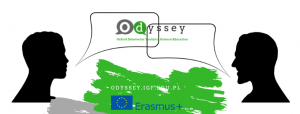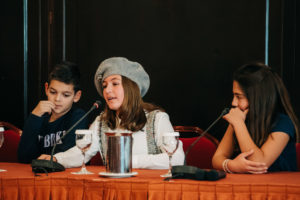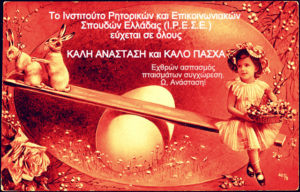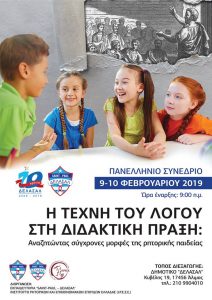Abstract: This paper aims at presenting the influence of classical, educational principles of rhetoric on the Toastmasters educational program. Toastmasters is an eminent, international organization which aims at instilling communication and leadership skills in its members in a constructionist and pressure-free educational setting. In this context, the ancient theory de ratione dicendi seems to be perfectly applied, interwoven with modern communication theories on public speaking. The research reveals that traditional rhetorical principles and practices continue to be the necessary equipment that each member of Toastmasters should acquire in order to become successful in public speaking. The statistical analysis of the questionnaire given to the active members of the Hellenic Toastmasters Club brings out their profile, their interests and the multiplicity of benefits that are expected to be received in the above educational setting.
Key words: Toastmasters, communication (skills), leadership (skills), public speaking, adult education, lifelong learning



